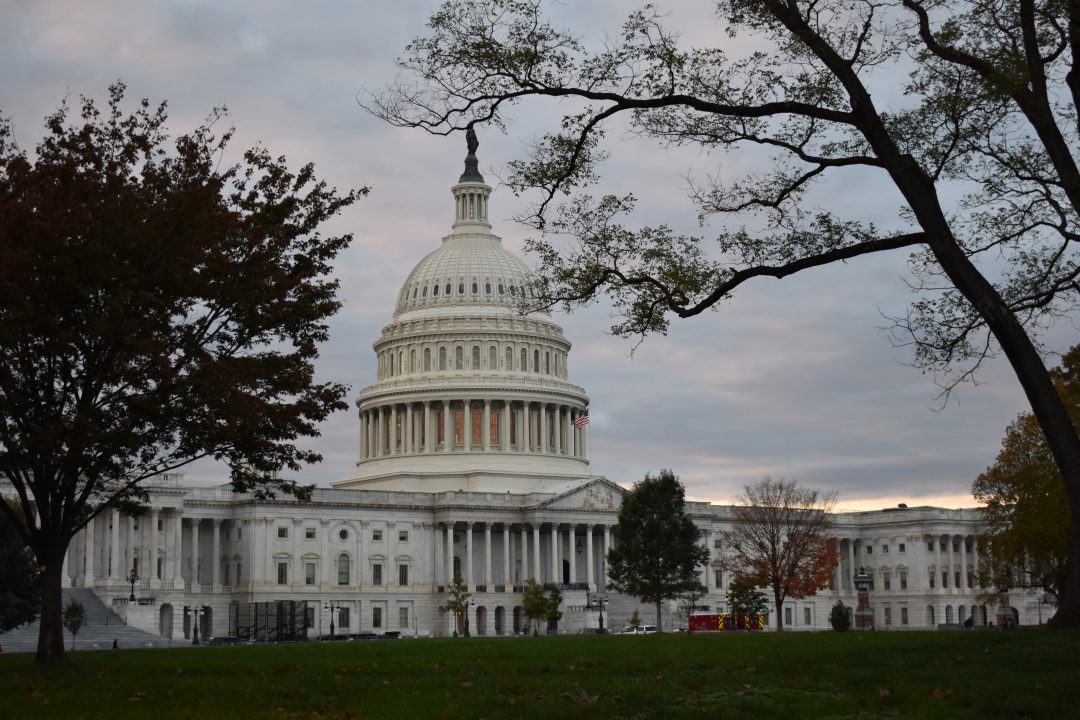
Benjamin Joffe is a freshman political science major.
The global climate crisis will soon reach a critical level. As emissions rise rapidly worldwide, the point of irreversible damage draws ever closer, with recent studies showing that this could occur as soon as 2027.
Yet, global resources continue to be overexploited; global forestation has decreased by 4% since 1990, 33% of soil has been degraded and 29% of the global fish stocks are overfished.
For decades, international communities of activists have called for immediate action to be taken, but to date, there has been no solution that has truly addressed the leading factor behind the climate crisis: corporate exploitation.
In efforts to avoid regulations, such as respecting nature preserves, limiting emissions as well as taxes and standards of worker compensation, corporations turn to nations with developing economies to manufacture their products while paying workers unlivable wages.
Oil corporations such as ExxonMobil, Shell and BP take this practice of undermining regulations one step further by regularly promoting environmentally damaging practices.
In fact, Lenny Bernstein, Exxon’s former in-house climate expert, stated in an email that Exxon was aware that its 1981 Natuna oil site would be considered a “carbon bomb” as it was composed of 70% carbon dioxide.
It is practices such as these that have led to only 100 corporations making up 70% of all global emissions.
How did the practice of avoiding regulation and exploiting developing nations become the standard of turning a profit? The answer lies within the symbiotic relationship that has existed between corporations and governments, especially within the United States.
The U.S. has a bloody history of using military interference to drive profits to national industries. In South America, the U.S. has sponsored coups of democratically elected leaders dozens of times, if it thought its economic interests were being threatened. This happens especially when a nation seeks to economically benefit their people, often with the implementation of socialist policies.
When Guatemalan President Jacobo Árbenz won the democratic presidential election in 1951, he established a series of communist reforms which strongly restricted the exploitative practices of American fruit companies. Seeing this, American fruit companies demanded a coup, and in 1954, U.S.-backed forces established a new government in Guatemala that would continue business with exploitative American companies.
Thus, the effects of imperialism are still seen around the world, as nations historically subjected to imperialistic practices have had their economic development hindered and are now being exploited by corporations as sources of cheap labor. This practice is known as neocolonialism, in which modern superpowers continue to exploit formerly colonized territories.
But cheap labor isn’t the only thing that draws industries to developing nations.
Exclusive resource depots found that many economically developing nations pique the interests of predatory corporations and promote unjust practices.
In Brazil for instance, U.S.-based corporations such as Walmart, Cargill and McDonald’s continue to profit from deforestation in the Amazon rainforest, as the destruction of forests increases available space for the production of soy and beef. If deforestation is to continue at this pace, 27% of the Amazon will be without trees by 2030.
The war in Iraq clearly showed that if a nation is reluctant to hand over resources, western powers would not hesitate to resort to military action.
For nearly 30 years prior to its invasion, Iraq had fully nationalized its large oil industry and refused to allow western oil companies to operate. Behind closed doors, this decision is what ultimately drove the west to invade Iraq in 2003.
After a brutal war, oil corporations such as Exxon, Chevron, BP and Haliburton saw their profits skyrocket as new oil reserves became available for extraction. Haliburton alone brought in $39.5 billion from U.S. contracts in Iraq.
It is this level of exploitation that is eerily similar to the imperialism practiced centuries ago.
The current state of capitalism, built upon centuries of imperialism, where consumerism and demand are ever-increasing, cannot sustain itself without taking advantage of both the people and resources belonging to developing countries.
This is demonstrated by the blood the west has shed in order to further its economic interests; there is a consensus among economic powers that without exploiting the resources of developing nations, their economies would suffer.
A legislative solution to this issue would be difficult to reach, as the citizens of western democracies would likely never vote against their own immediate best interests, such as keeping oil prices low.
President Biden has made promises to slash carbon emissions during his administration, yet no concrete legislation has been passed. Still, progressive legislation that will reform domestic practices can serve as a first step towards reforming how corporations exercise resource extraction worldwide.
The Green New Deal, a bill that would create new policies to address the climate crisis, has long been called into action by progressives who aim to spearhead net-zero carbon emissions within the U.S. This could inspire the international community to follow suit and enforce corporate accountability to curb exploitative practices.
The current path undertaken by economic powers is unsustainable, and immediate action must be taken to avoid irreversible climate damage and economic failure. While reform is difficult, it is certainly possible if leaders openly acknowledge and seek to mend neocolonial practices.
























